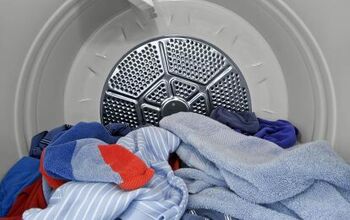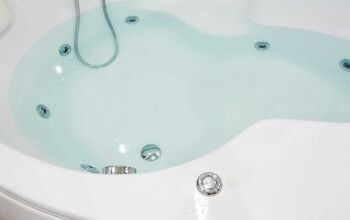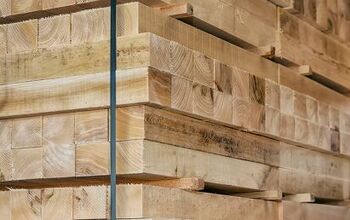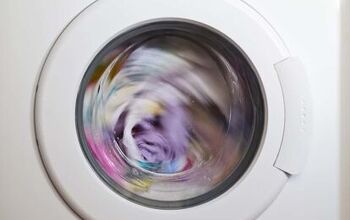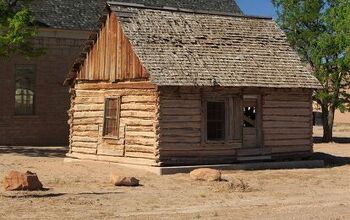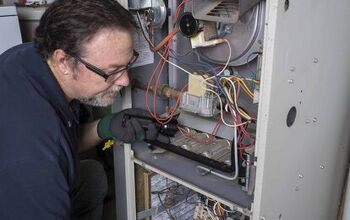House Smells Like Something Is Burning? (Possible Causes & Fixes)

It is normal to be alarmed anytime that you smell something burning, especially when it’s inside your home. Burning smells are common, but they are disconcerting and can be difficult to identify in many cases. So, why is there a burning smell in your house?
The most common causes for a burning smell in your house are burnt food, dust on the furnace, and clogged air ducts. A burning smell can also spread throughout your house if you constantly run a space heater or if it is dirty. Frayed wires, electrical problems, and overheated appliances such as ovens or refrigerators can also create a burning smell in your home.
Simple solutions include cleaning your appliances, replacing air filters, and removing debris from your air ducts. A burning smell in your home isn’t always a sign that you’re in danger, but it’s important to do something about it right away. Follow along as we explore why your house smells like something is burning and what you should do about it.
Do You Need a Heating and Cooling Contractor?
Get free, zero-commitment quotes from pro contractors near you.

Why is There a Burning Smell in My House?
1. Burnt Food
Burnt food is the most common reason that you’ll notice a burning smell in your house. Your kitchen is the first place you should check when you notice a burning smell in most cases. Food can easily fall to the bottom of your oven and microwave or near the burner nozzle on your stove.
Burning smells can linger in a kitchen long after you’ve burnt food in many cases. Whether you forgot about a dish in the oven or made a simple mistake, it’s easy to burn food. You can help tone down the odor if you open a window and turn on a fan.
Let the oven, stove, or microwave cool down and thoroughly clean it to remove the smell. However, you should never throw burnt food into a trash can. Let the burnt food cool down or wait until you’ve doused it in water before you throw it away to be safe.
2. Air Duct Blockage
Blockages in your air duct can make a burning smell spread throughout your house. You can generally tell that the smell is coming from your air duct if the odor comes from your blower fans. Air duct blockages often occur when someone drops a tool or object in an air duct during service.
Blockages also occur if there is a buildup of dust and debris that gets out of control. The best thing to do is hire an HVAC professional to clean out your air ducts. However, you can clean your air ducts if you exercise caution and turn off your HVAC system.
Use a flashlight to identify the blockage in your air duct. Remove the blockage with a hanger or vacuum if it isn’t lodged deep within the air ducts. Otherwise, a professional is best suited to unclog your air ducts with specialized HVAC tools.
3. Electrical Problem
Electrical problems can create a burning smell in your house and it can also pose a fire hazard. You can often tell that the burning smell is due to electrical problems if you see signs of scorching near electrical outlets. Turn your HVAC system off immediately if you see burn marks near or if electrical components of your furnace are hot.
Only an HVAC professional or electrician should attempt to fix electrical problems with a furnace. Overheated or damaged wires can create a distinct electrical burning smell. Luckily, the electrical smell is different from a typical burnt dust or food smell, and many homeowners can identify it.
Frayed wires are the most common cause of a burning electrical smell in your house. Electrical burning smells can come from any room in the house, and it may have nothing to do with your HVAC system. Switch off your circuit breaker if the smell comes from a specific area and call an electrician.
4. Dirty Space Heater
A space heater can easily create a burning smell that can spread throughout your house. This happens when dust settles and builds up within your space heater. Space heaters can put off a burning smell if you run them constantly as well.
You can minimize your space heater’s burning smell if you clean it twice per year. Clean your space heater more than that or as needed if gets dirty and smells burnt quickly. Burning debris can create a fire hazard and it’s not safe to leave your space heater dirty for too long.
Carefully inspect your space heater to make sure that nothing fell in there. Your house will smell like smoke or burning plastic if toys or small objects fall inside. In that case, you’ll need to wait until it cools down to clean it.
5. Overheated Appliances
Any appliance that you have in your home runs the risk of overheating. Refrigerators, ovens, coffee makers, blenders, toasters, and microwaves can overheat and let off a burning smell. This can happen if there are frayed wires or if you run the appliance constantly.
You need to unplug an overheated appliance right away if you notice a burning smell while it runs. Kitchen appliances such as microwaves and ovens can easily have frayed wires or burnoff from food scraps and grease. Inspect appliances or hire a professional to determine whether or not you should replace your appliance that overheated.
6. Dust on Furnace
It is common to notice a burning smell in your house if there is dust on your furnace. This often occurs when you run your furnace for the first time in the fall or winter season. It is almost unavoidable that dust will accumulate on your furnace when you don’t use it during the spring and summer.
The only solution is to let the heat burn the dust off of your furnace. It may smell bad for now, but it’s best to get it out of the way and let the dust burn off. You will notice the burning smell fade after an average of 2 hours as the dust burns off.
Replace your air filters if that doesn’t work and the burning smell continues. Contact an HVAC technician to inspect your furnace and air conditioner if you still smell something burning.
Is a Burning Smell Always Dangerous?
Though a burning smell should be a good reason to hit a pause button, this doesn’t always have to be a sign of a potentially deadly blowup. Sometimes, it just means that you might have a burned meal or that you need to clean your furnace. In many cases, a burning smell in your house could could be as simple as your neighbor burning their barbeque.
What we’re saying is that you shouldn’t panic, but that you should watch out for a potential fire hazard. Think of it as a warning sign. Call 911 if your fire alarm goes off and you smell a persistent burning smell in your home. You may not always be able to see the fire before it turns into a lethal force.
Related Questions
What does electrical burning smell like?
Burning electrical components and wires generally smell similar to burnt plastic. You can usually distinguish it from other burning odors such as dust which has a smokier smell. The burnt plastic smell can help you tell which appliance is burning or overheating due to the distinct odor.
Can air vents catch fire?
A fire can start within your air vents if there is dust and debris. Flames from other parts of your house can also enter your air vents and spread. Debris in your ductwork can clump together and ignite if you run the furnace for a long time and haven’t had your ducts cleaned.
Summing It Up
Your house may smell like something is burning if there is dust on your furnace or your appliances are overheated. Dirty air filters, clogged air ducts, and debris in your space heater can also make your house smell like smoke. Electrical burnouts and overheating are easy to identify because of the unique burnt plastic smell.
Turn off your HVAC system and call a professional right away if you notice a burnt plastic smell coming from your air ducts. This can indicate that there are frayed wires or damaged electrical components within your HVAC system. Luckily, all that you need to do if you notice a burning smell at the beginning of winter is let the dust burn off in your furnace.

Ossiana Tepfenhart is an expert writer, focusing on interior design and general home tips. Writing is her life, and it's what she does best. Her interests include art and real estate investments.
More by Ossiana Tepfenhart












